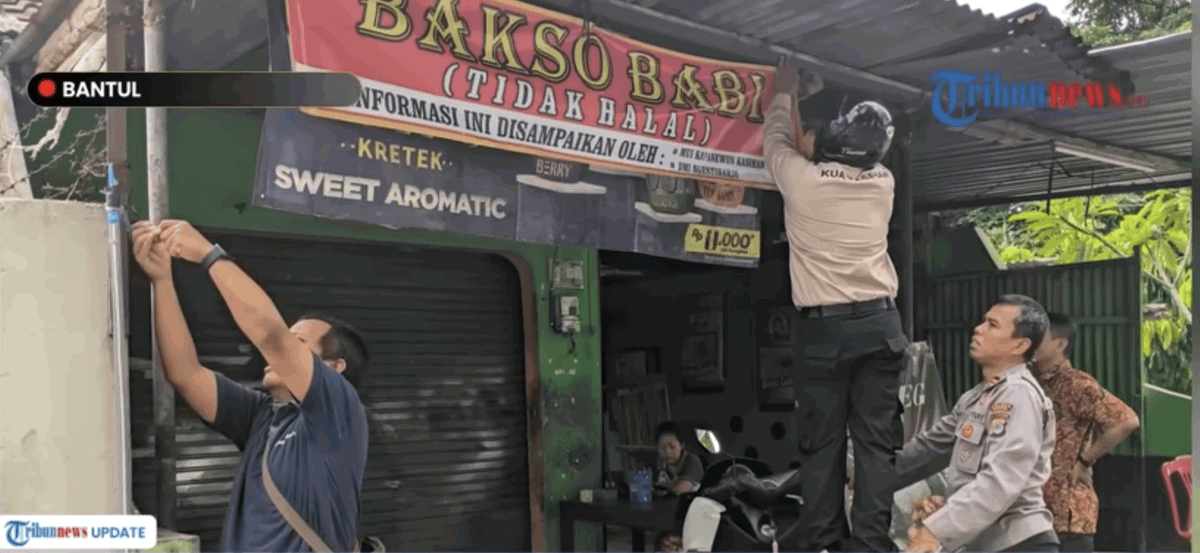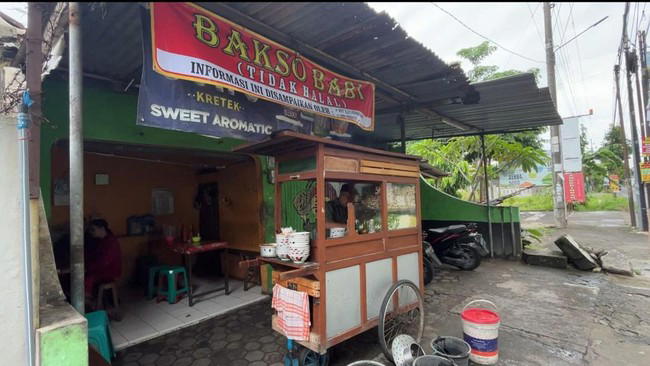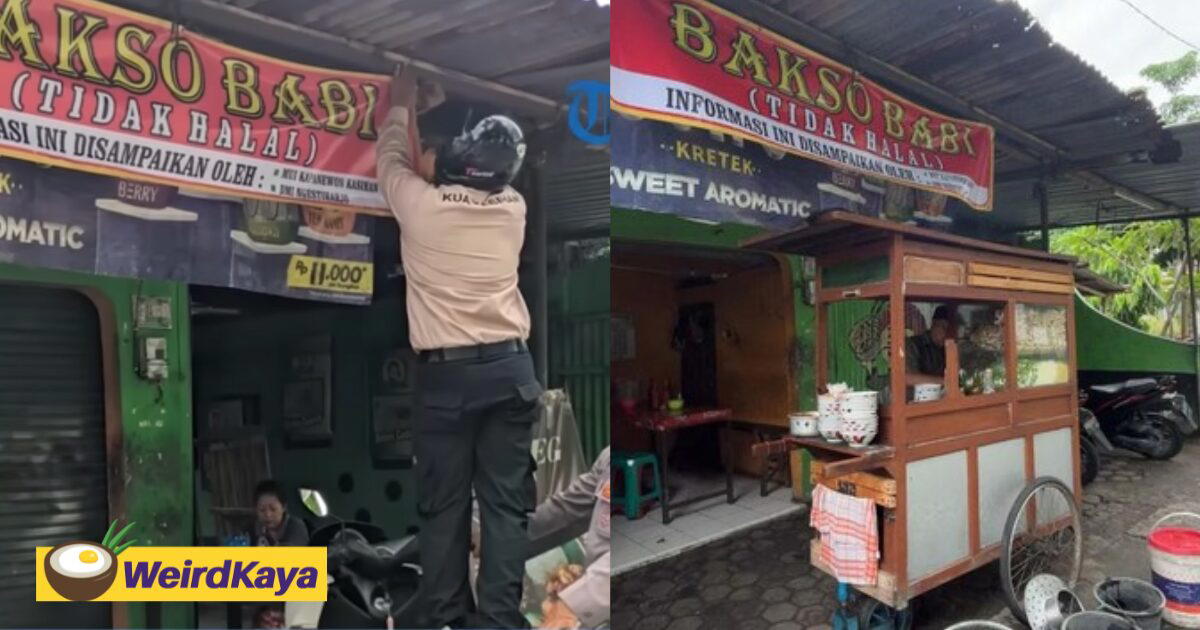A popular bakso stall in Yogyakarta is now under scrutiny after it was exposed for selling non-halal food for nearly a decade without informing customers.
Residents were shocked to learn that the stall, which many Muslims had supported for years, had been operating without any clear notice that the meat used was not halal. The discovery quickly sparked anger within the community, CNN Indonesia reported.
Mosque council steps in after public outrage
Following the uproar, the Indonesian Mosque Council (DMI) took swift action to prevent further confusion. Its secretary, Ahmad Bukhori, said the organisation was responsible for putting up a warning banner at the stall to alert Muslims about the true status of the food.

He said the measure was necessary to ensure that Muslims in the area would not unknowingly purchase or consume non-halal food.
DMI revealed that concerns over the stall had surfaced much earlier. Discussions about its halal status first began during a meeting in December 2024 after residents voiced worries about a bakso seller who did not disclose that the meat used was unsuitable for Muslim consumption.
We began discussing this matter in DMI meetings around December 2024. At the time, residents were already worried about the presence of a non-halal bakso seller who deliberately did not disclose the status of their products,” a DMI representative said.
Stall has reportedly sold pork bakso since the 1990s
The controversy deepened when it was revealed that the seller had been offering pork based bakso since the 1990s. Although the stall only moved to its current Yogyakarta location in 2016, the long standing practice continued without any public disclosure.

Despite operating for decades, the seller had never displayed a clear notice stating that the bakso was not halal. This caused many Muslim customers to feel deceived after unknowingly consuming the food for years.
Ahmad Bukhori said many customers were Muslims, including hijab wearing women, and none realised the type of meat used in the bakso.
“Many of the customers were Muslims, and they did not know the nature of the bakso,” he said.
Ahmad also revealed that a number of local residents knew the bakso contained pork but kept quiet because they feared that speaking up might cause conflict within the community.
Authorities contacted to end years of confusion
As complaints grew louder, DMI took immediate action earlier this year by contacting village chiefs, community representatives, and the stall owner.
The purpose was to ensure that the true status of the food was openly clarified to the public, effectively ending what many consider nearly a decade of misleading business practices.



